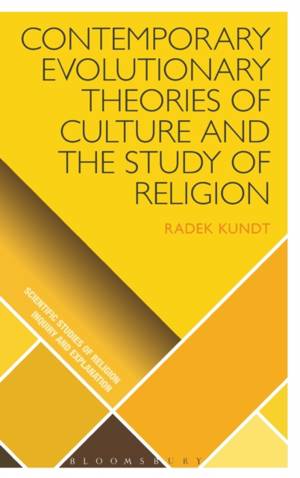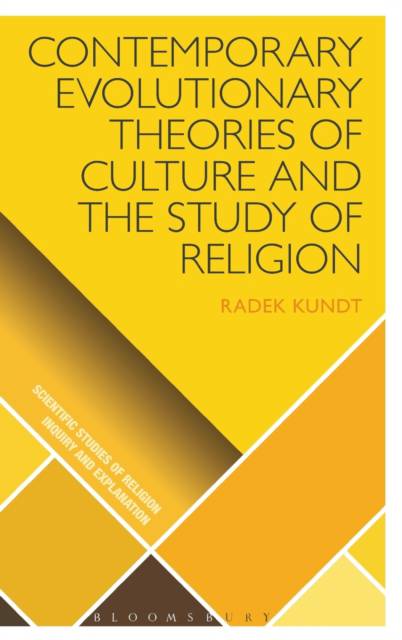
Bedankt voor het vertrouwen het afgelopen jaar! Om jou te bedanken bieden we GRATIS verzending (in België) aan op alles gedurende de hele maand januari.
- Afhalen na 1 uur in een winkel met voorraad
- In januari gratis thuislevering in België
- Ruim aanbod met 7 miljoen producten
Bedankt voor het vertrouwen het afgelopen jaar! Om jou te bedanken bieden we GRATIS verzending (in België) aan op alles gedurende de hele maand januari.
- Afhalen na 1 uur in een winkel met voorraad
- In januari gratis thuislevering in België
- Ruim aanbod met 7 miljoen producten
Zoeken
Contemporary Evolutionary Theories of Culture and the Study of Religion
Radek Kundt
€ 296,95
+ 593 punten
Uitvoering
Omschrijving
Radek Kundt compares the notion of evolution in cultural evolutionary theories with neo-Darwinian evolutionary theory to determine the value of the biological concept for studying culture.
Contemporary Evolutionary Theories of Culture and the Study of Religion surveys the historical background of cultural evolution as used in the study of religion, pinpointing major objections to classical nineteenth-century theories. Radek Kundt argues that contemporary theories of cultural evolution do not repeat the same mistakes but that when they are evaluated in terms of fitting the core requirements of neo-Darwinian natural selection, it is clear that they are not legitimate extensions of neo-Darwinian theory. Rather, they are poor metaphors and misleading analogies which add little to conventional cause-and-effect historiographical work.
This book also introduces an alternative evolutionary approach to the study of culture which does not claim that the principles of neo-Darwinian evolution should be applicable outside the biological domain. Radek Kundt shows that this alternative evolutionary approach nevertheless provides a deeply enriching line of enquiry that incorporates both biological evolutionary history as shaping cultural change and culture as a force acting on the gene.
Contemporary Evolutionary Theories of Culture and the Study of Religion surveys the historical background of cultural evolution as used in the study of religion, pinpointing major objections to classical nineteenth-century theories. Radek Kundt argues that contemporary theories of cultural evolution do not repeat the same mistakes but that when they are evaluated in terms of fitting the core requirements of neo-Darwinian natural selection, it is clear that they are not legitimate extensions of neo-Darwinian theory. Rather, they are poor metaphors and misleading analogies which add little to conventional cause-and-effect historiographical work.
This book also introduces an alternative evolutionary approach to the study of culture which does not claim that the principles of neo-Darwinian evolution should be applicable outside the biological domain. Radek Kundt shows that this alternative evolutionary approach nevertheless provides a deeply enriching line of enquiry that incorporates both biological evolutionary history as shaping cultural change and culture as a force acting on the gene.
Specificaties
Betrokkenen
- Auteur(s):
- Uitgeverij:
Inhoud
- Aantal bladzijden:
- 192
- Taal:
- Engels
- Reeks:
Eigenschappen
- Productcode (EAN):
- 9781474232241
- Verschijningsdatum:
- 19/11/2015
- Uitvoering:
- Hardcover
- Formaat:
- Genaaid
- Afmetingen:
- 157 mm x 236 mm
- Gewicht:
- 430 g

Alleen bij Standaard Boekhandel
+ 593 punten op je klantenkaart van Standaard Boekhandel
Beoordelingen
We publiceren alleen reviews die voldoen aan de voorwaarden voor reviews. Bekijk onze voorwaarden voor reviews.









